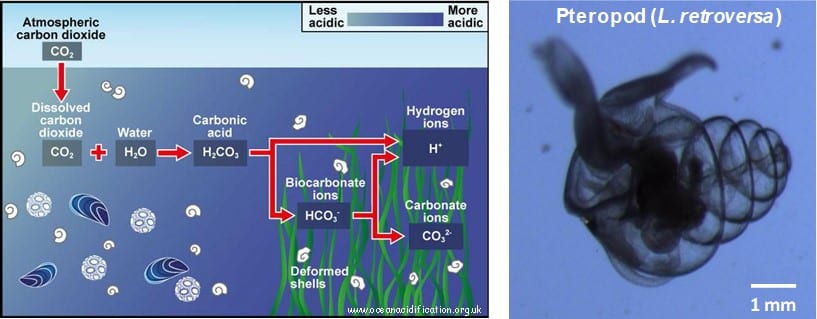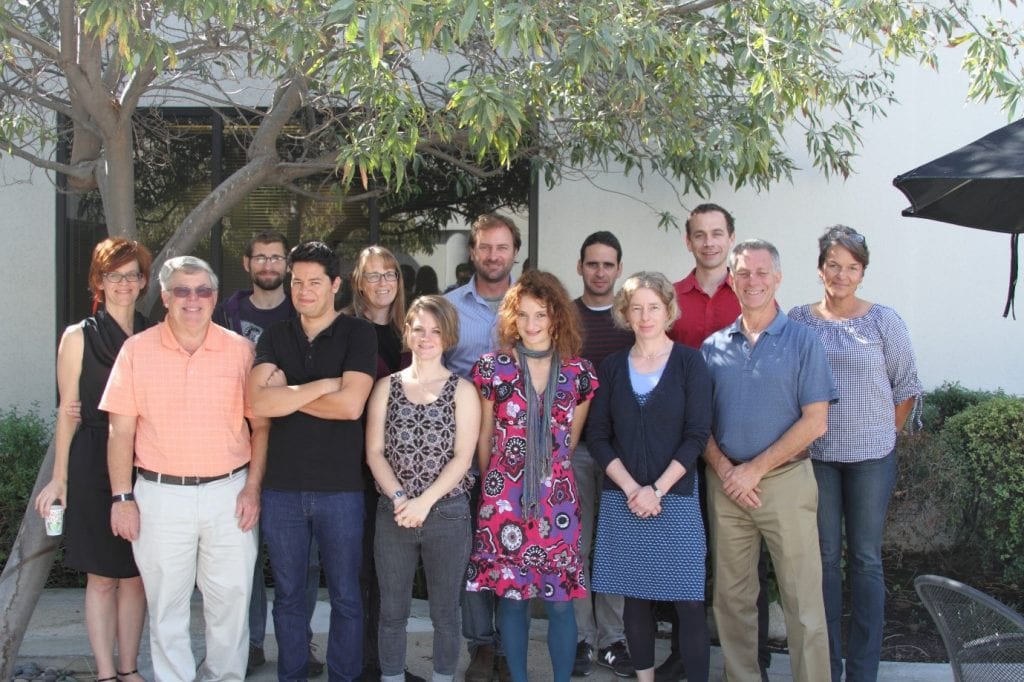Marine
Marine Scotland Contributes to International Publication on Ocean Acidification
July 25, 2019 by Marine Directorate Communications No Comments | Category Marine Directorate general, Marine Directorate Science, Publications, Scottish Coastal Observatory
Concern is growing globally about the impacts of ocean acidification (OA) on the marine environment. OA results from a change in the carbonate chemistry of the ocean making it more acidic, primarily as a result of the increased uptake of carbon dioxide from the atmosphere. This increased acidity of seawater may negatively impact many marine organisms that live in it, including plankton, shellfish, fish larvae, seaweed and seagrasses, potentially affecting commercially exploited species.
There is a great concern about the potential impact of OA on calcifying plankton, microscopic organisms with outer skeletons made of calcium carbonate. Examples of calcifying plankton include the larval stages of many shellfish such as mussels and scallops, and pteropods, which are small marine snails commonly known as the “sea butterfly” (e.g. Limacina sp.). Increased seawater acidity would create more corrosive conditions that may dissolve their calcareous shells and make it harder to build them (figure 1).

Figure 1. Schematic of potential impacts of OA on marine organisms with outer skeletons containing calcium carbonate (left), and pteropod Limacina retroversa observed under light microscopy (right).
In recent years significant efforts have been made globally to monitor and research impacts of OA. Pteropods are thought to be especially vulnerable to OA. Their shell mineralogy (comprised of aragonite, a more soluble form of calcium carbonate) makes this group more sensitive to changes in the ocean chemistry. As a result of this sensitivity and wide distribution in the world’s oceans, pteropods have been suggested as a good proxy for assessing biological effects of OA. The lack of scientific consensus on thresholds at which marine life respond to OA hinders our ability to interpret monitoring data and model outputs, as well as future projections on OA. Thresholds are also needed as the basis for regulatory decisions on ocean water quality management.
Dr Pablo Leon Diaz from Marine Scotland Science (MSS) was one of the international experts invited in September 2017 to participate in the workshop “Development of pteropod assessment endpoints for ocean acidification” (figure 2). Sponsored by the California Ocean Protection Council and hosted by the Southern California Coastal Water Research Project (SCCWRP). This unique workshop gathered OA experts from around the world to synthesize thresholds of pteropod vulnerability to OA in response to US west coast Governors request. Specifically, experts worked on developing biologically-relevant management thresholds that could help the US west coast states to interpret monitoring and modelling data.
The MSS contribution focused on natural variability associated to some of the suggested OA indicators (e.g. seawater aragonite content), based on the data gathered at the Scottish Coastal Observatory (SCObs) monitoring site at Stonehaven (NE coast of Scotland), which is one of the few sustained monitoring sites of OA and plankton in coastal waters in the NE Atlantic.

Figure 2. Attendees at the “Development of pteropod assessment endpoints for ocean acidification” workshop.
The workshop outputs have been recently published in Frontiers of Marine Science (Bednaršek et al., 2019). This paper presents a global literature review and identifies descriptors (shell dissolution and calcification, growth, egg development and survival) and thresholds for OA impact on pteropods. MSS has recently completed a study investigating the impact of OA on pteropods at the SCObs Stonehaven monitoring site which will be published in the near future. Work examining the impacts of OA on plankton in Scottish waters is ongoing.
Further Reading:
- Bednaršek, N., Feely, R., Howes, E., Hunt, B., Kessouri, F., León, P., Lischka S. et al. 2019. Systematic review and meta-analysis towards synthesis of thresholds of ocean acidification impacts on calcifying pteropods and interactions with warming. Frontiers in Marine Science, 6:227.
- SCObs OA topic sheet
- SCObs OA and plankton topic sheet
- SCObs topic sheet
Tags: carbon dioxide, coastal monitoring, environment, marine environment, marine science, plankton, publication, research, sampling, science, SCObs, Scotland, Scottish Coastal Observatory, seaweed, shellfish, STEM, Stonehaven


Leave a comment